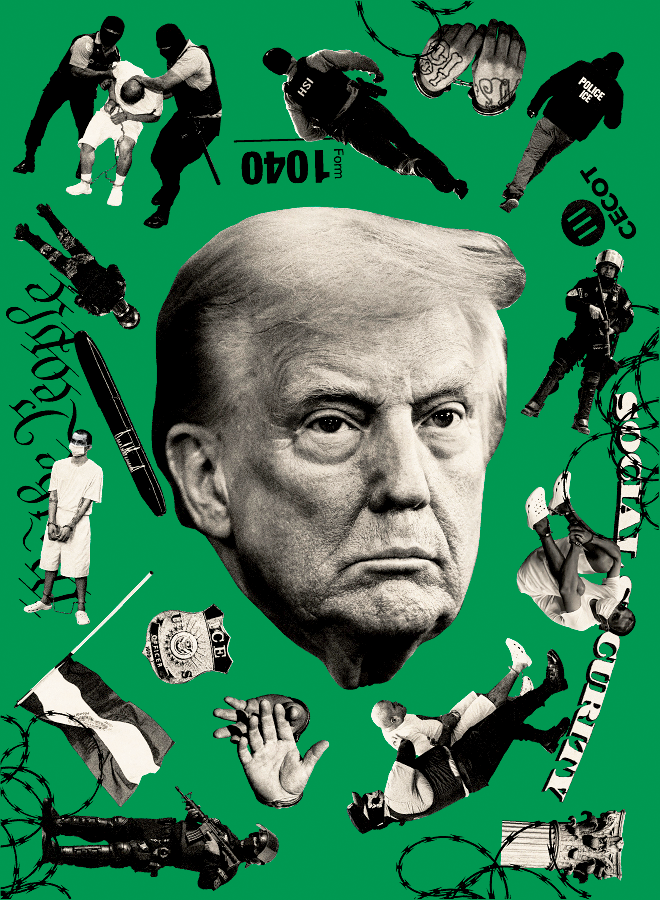Now Reading: Donald Trump’s Deportation Obsession
-
01
Donald Trump’s Deportation Obsession
Donald Trump’s Deportation Obsession

In El Salvador three years ago, President Nayib Bukele urged his supporters in the legislature to implement a “state of exception” after the MS-13 gang killed eighty-seven people within seventy-two hours. Under this measure, the government could detain individuals considered suspicious without legal defense rights. Since then, about eighty-five thousand people have been imprisoned, with many lacking credible charges. Human rights group Cristosal reports that three hundred and sixty-eight of them have died. While the gangs have been weakened, the “state of exception” is still in place, earning Bukele praise from the MAGA movement and a recent White House invitation.
The Trump Administration is paying six million dollars to El Salvador to house deported immigrants, including over a hundred Venezuelans expelled under the Alien Enemies Act of 1798, in a supermax prison constructed by Bukele for his crackdown. Bukele has marketed his detention services as “outsourcing” and even offered to accommodate American citizens convicted of crimes, which has caught Trump’s interest. During a meeting at the Oval Office, Bukele claimed, “I like to say that we actually liberated millions,” prompting Trump to inquire about using the line himself.
The Trump Administration is pushing for mass self-deportation through aggressive policies targeting immigrants. This move resembles Bukele’s “state of exception” and undermines the rule of law, representing both an assault on immigrants and a pursuit of unchecked power.
Bukele and Trump publicly defied a unanimous U.S. Supreme Court ruling regarding the deportation of Kilmar Abrego Garcia, a Salvadoran mistakenly deported to El Salvador. Despite efforts to bring him back, the Administration labeled Abrego Garcia as an MS-13 gang member and terrorist without evidence. Additionally, the Administration initiated the cancellation of Social Security numbers for lawfully residing immigrants and plans to share their information with immigration enforcement.
The Administration’s actions are expected to have severe financial and legal implications for immigrants. Through controversial collaborations between agencies like ICE and the IRS, the government aims to identify and deport millions, potentially leading many immigrants to stop paying taxes. This could result in significant financial losses for the government in the coming years.
The Administration’s aggressive policies are causing uncertainty and fear among immigrant communities, impacting even legal residents. Individuals like Mahmoud Khalil and Yunseo Chung face deportation threats due to their activism, while Mohsen Mahdawi was arrested during his citizenship interview despite holding a green card for a decade.
Bukele and Trump have shown a willingness to challenge judicial authority to enforce their policies, leading to clashes with the judiciary. The Administration’s actions have raised concerns about constitutional rights and threaten the well-being of both citizens and non-citizens.


